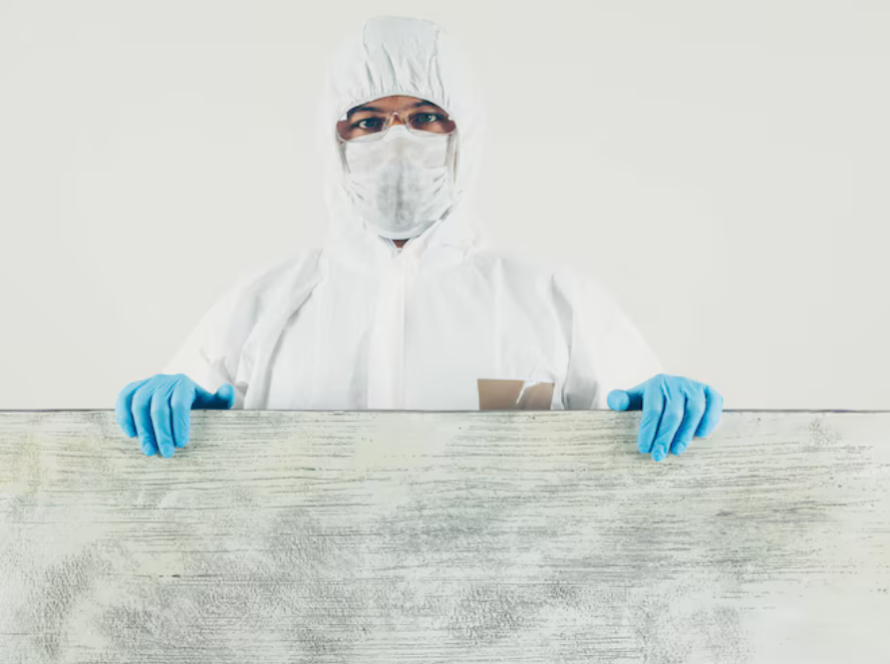If you’re reading this, it’s probably because you have a mold problem in your home. Mold is a type of fungus that thrives in moist environments and is most commonly found in areas with high humidity such as kitchens, bathrooms, and basements. But did you know that there are also benefits to having mold in your home? In small amounts, mold can be good for your immune system. It helps keep other harmful pathogens from growing. So let’s take a look at the pros and cons of mold, its impact on health and how to get rid of it once and for all.
What is mold and its effects on health?
A fungal type that grows in warm, moist environments, mold can be found on walls, floors, windowsills, and pretty much anywhere else you find water damage or has a source of protein to latch onto. The downside of having it in your home is that it releases toxic fumes that can cause respiratory issues, allergies, and serious health conditions like asthma. You can identify mold by its appearance (it can be black, white, green, or other colors), smell, and texture. It grows in humid environments and reproduces by spores, which is why it’s so difficult to get rid of. If you have mold in your home and see any of the signs above, it’s important to act fast. The longer you leave it, the more damage it can do to your health.
How does mold affect your health?
When it comes to the health effects of mold, the most important thing to remember is that it’s not the mold itself that’s harmful. It’s the spores it releases and the toxins it generates. People with mold allergies, asthma, or compromised immune systems are especially susceptible to the harmful effects of mold. If you, or anyone else in your home, has these conditions, you may want to take special precautions when dealing with mold. Some of the problems that can result from exposure to mold include respiratory issues, headaches, nausea, and vomiting. In extreme cases, mold can even cause death.
Mold prevention strategies
If you’re worried about mold, there are some simple steps you can take to prevent mold from growing in your home. First, try to reduce the relative humidity and moisture in your home, especially in areas where you see mold most often, such as bathrooms and kitchens. Change your AC unit filters every 3-4 weeks. Don’t leave doors and windows open while AC is running to avoid condensation buildups. Make sure your vents are clear, and don’t overuse humidifiers. Try to avoid letting puddles of water collect in your home as well. If you find that you have a serious mold problem in your home, it may be time to call a professional. Some of the best methods for preventing mold include: – Improving ventilation – Proper ventilation can prevent excess moisture in your home. – Reducing humidity – Keep humidity levels below 40%-60% to prevent mold. – Cleaning up leaks – Fix leaks in pipes, roofs, and other areas that could be causing water damage leading to mold. – Using exhaust fans – Use exhaust fans in kitchens and bathrooms to expel humid air. – Using dehumidifiers – These can be used in any area of your home.
How to remove mold safely
There are two ways to go about removing mold from your home: you can treat it with a killing agent, or you can employ a non-toxic approach and just remove it. While killing agents like bleach are effective at killing mold, they can also be harmful to you and your family. That’s why it’s important to use them carefully. Here are some safety tips when using bleach to kill mold: – Wear a respirator mask and protective gloves when applying the bleach. – Don’t mix bleach with other cleaning products. – Keep bleach out of the reach of children and pets. – Use cleaning pads or paper towels to apply the bleach, not your hands. – Wash your hands thoroughly after using bleach.
If you’d prefer to avoid using chemicals, you can use a non-toxic agent like baking soda to soak up the moisture that’s feeding the mold. After mold removal, thoroughly clean the area to prevent recurrence or hire a PRV company for verification.
Conclusion
Mold is a common problem that can be difficult to get rid of. When you have mold in your home, it’s important to take steps to remove it as soon as possible. If you leave it for too long, it can spread and cause more damage. For mold issues, hire an expert contractor to assess damage and advise on the best action. Don’t attempt to remove it yourself unless you know exactly what you’re doing. You can also try using natural remedies to get rid of mold, such as baking soda, vinegar, or hydrogen peroxide.




